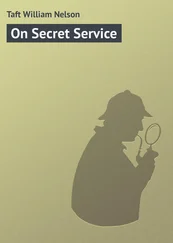William Fitzpatrick - Secret Service Under Pitt
Здесь есть возможность читать онлайн «William Fitzpatrick - Secret Service Under Pitt» — ознакомительный отрывок электронной книги совершенно бесплатно, а после прочтения отрывка купить полную версию. В некоторых случаях можно слушать аудио, скачать через торрент в формате fb2 и присутствует краткое содержание. Жанр: foreign_antique, foreign_prose, на английском языке. Описание произведения, (предисловие) а так же отзывы посетителей доступны на портале библиотеки ЛибКат.
- Название:Secret Service Under Pitt
- Автор:
- Жанр:
- Год:неизвестен
- ISBN:нет данных
- Рейтинг книги:5 / 5. Голосов: 1
-
Избранное:Добавить в избранное
- Отзывы:
-
Ваша оценка:
- 100
- 1
- 2
- 3
- 4
- 5
Secret Service Under Pitt: краткое содержание, описание и аннотация
Предлагаем к чтению аннотацию, описание, краткое содержание или предисловие (зависит от того, что написал сам автор книги «Secret Service Under Pitt»). Если вы не нашли необходимую информацию о книге — напишите в комментариях, мы постараемся отыскать её.
Secret Service Under Pitt — читать онлайн ознакомительный отрывок
Ниже представлен текст книги, разбитый по страницам. Система сохранения места последней прочитанной страницы, позволяет с удобством читать онлайн бесплатно книгу «Secret Service Under Pitt», без необходимости каждый раз заново искать на чём Вы остановились. Поставьте закладку, и сможете в любой момент перейти на страницу, на которой закончили чтение.
Интервал:
Закладка:
The 'Correspondence of Napoleon' 229contains a letter to Berthier, dated September 27, 1804. He says that an expedition to Ireland had been decided upon; that 18,000 men for that purpose were ready at Brest; that a simultaneous landing was to be attempted in Kent; while in Ireland the French army would march straight on Dublin. Meanwhile 200,000 men were encamped at Boulogne; but hostile plans collapsed with the smash of the French fleet at Trafalgar. A few weeks later the so-called 'Army of England' traversed the banks of the blue Danube instead of the Thames. General Mack capitulated at Ulm; Francis of Austria fled, and Napoleon's legions entered Vienna.
CHAPTER IX
ARREST OF JÄGERHORN IN LONDON – THE PLOT THICKENS – TURNER SHOT THROUGH THE HEAD
In 1799, Turner's stealthy steps can be traced once more in London. It will be remembered that Lord Edward Fitzgerald had met, by appointment near Whitechapel, M. Jägerhorn, a secret envoy of France, and gave him, in full detail, information regarding every point on which that agent had been charged to inquire. Jägerhorn was 'the estimable Swede' named by Reinhard, the French minister at Hamburg, when writing the intercepted letter. This document, dated July 12, the editor of the 'Castlereagh Papers' assigns to the year 1798; 230but as Lord Edward was dead at that time, 231it must belong to the previous year. Other secret missives were sent to Dublin at the same time by the Home Office, in order to guide the course of the Irish Government. These papers, filling forty pages of the book, 232were the result of a successful stroke of espionage at Hamburg.
M. Jägerhorn is of course the person alluded to by Mr. Froude when describing the nocturnal visit to Lord Downshire. 'He [Lord Edward] had been watched in London, and had been traced to the lodgings of a suspected agent of the French Directory, and among other papers which had been forwarded by spies to the Government, there was one in French containing an allusion to some female friend of Lady Edward, through whom a correspondence was maintained between Ireland and Paris.'
Hamburg was Turner's usual residence, and Jägerhorn had an estate near that place. 233
Although the case of M. Jägerhorn is opened in the first volume of the 'Castlereagh Papers,' and misplaced among the incidents of another year, we do not find until far in the second the letters addressed to him in 1797 by General Valence and Lord Edward. In 1799 Jägerhorn had sought to renew his perilous enterprise. The same keen scent which traced Lord Edward, in 1797, to the lodgings of the confidential envoy in London, was once more on his track. Wickham, writing from the Home Office on March 28, 1799, has news for Castlereagh in Dublin: 'I have the satisfaction to inform your lordship that we have secured M. Jägerhorn, who was coming over here on a mission similar to that which he undertook some two years since, when he met Lord Edward Fitzgerald in London.'
A full report is given of Jägerhorn's examination, in which he is asked: 'Were you not charged to deliver to Lord Edward Fitzgerald a letter from somebody?' and he replied, 'Madame Matthiessen.' This was the lady, nearly connected with Lady Edward, and alluded to by Mr. Froude as a name found in secret papers. He is further questioned about Lord Edward, Lady Lucy, General Valence, and a number of other persons whose names had cropped up in the interview between Turner and Downshire; but, though the queries were searching, and Jägerhorn now seemed completely in Pitt's power, nothing material was wrung from him. England and Russia were at this time allied, and Jägerhorn, pretending that he had a pension of 2,000 roubles as a spy of Russia, rather dumb-foundered his examiners, and he at last regained his liberty. All this is to be found, with full details, in the 'Correspondence of Lord Castlereagh.'
The paltry sum which Turner received for his services now comes to be considered. This man, who had every facility of access to Lady Edward's house at Hamburg and its rebel entourage , held the key of a position so incalculably important that he never himself discerned its marketable value. Thousands would doubtless just as readily have been paid to him as 'the cool 500 l. ' that he modestly asked. 'To get the information had cost him,' he said, 'three times that sum, and to keep up the acquaintances and connections he had at Hamburg he could not live on less.' 'Small profits and quick returns' seems to have been his motto.
'Fresh evidence of the person's power to be useful,' writes Froude, 'made Pitt extremely anxious to secure his permanent help.' The Cornwallis papers record, but without any attempt to identify him, that the pension Samuel Turner received – dating from 1800 – was but 300 l. a year. Wellington when Irish Secretary addressed to Portland a letter in which a present payment of 5,000 l. , and 'not more than 20,000 l. within the year,' appears guaranteed to one nameless informer. 234
Another case may be cited. A document placed in my hands by Sir W. Cope, Bart., records that his grandfather was told by Under-Secretary Cooke to stop at no sum, not even 100,000 l. , in urging Reynolds to turn approver. Reynolds, not realising the importance of his evidence, consented to take 5,000 l. and 1,000 l. a year, with the post of British consul. The tergiversation of Reynolds did not take place until 1798, long after Turner had sold the pass.
The services of 'Downshire's friend' were more timely and, perhaps, more valuable. He told what he knew in 1797: the names he gave of the Executive Committee (p. 7, ante ) proved more important than might appear at first sight. Reynolds, it is true, gave the hint that a Committee would be found sitting at Bond's on March 12, 1798, but he does not seem to have disclosed names; his son says that the names were inserted in the warrant purely 'on speculation.' 235
As regards the more distinct whisper of Turner, the betrayal of the Belfast Directory, at the very hour that Tone was leaving Brest with a French fleet, proved in itself a paralysing blow, and one worth its weight in gold. But the arm that dealt it struck from behind unseen. However, as most of the information that Downshire's friend gave concerned the Northern organisation, he may, perhaps, be credited with this exploit. The loss of Ulster was the loss of the right arm of the rebellion. Turner made his disclosures on October 8, 1797. Besides the list of the Executive Directory, there can be no doubt that in the information which followed he named, with others, John Hughes of Belfast, the date and place of whose arrest tally with the presumption that to Turner it was due. The 'History of Belfast' records: 'October 20, 1797 – John Hughes, bookseller, having been apprehended in Newry 236on a charge of high treason, was brought in here escorted by a party of light dragoons.' 237Mr. Froude says that 'Downshire's friend' kept him informed of everything. 238
How well Turner knew Hughes is proved by the sworn testimony of the latter, 239in which he describes a breakfast in June 1797, with Samuel Turner, Teeling, Macnevin, etc., when the fitness of the country for an immediate rising was debated. Hughes had been a great patriot previously, but now to save himself became a mercenary informer, and even sought to criminate Grattan, who thereupon was dismissed from the Privy Council, though, as Stanhope 240admits, without just cause. There had been no more zealous propagandist of the rebellion than Hughes, and he names a long list of men whom he himself had sworn in on a prayer-book. In 1802 John Hughes retired to the United States and became a slave-owner.
Wickham's letter of June 8, 1798, enumerated, for the information of Lord Castlereagh, a number of men whose arrests in England seem consequent on the information furnished by Downshire's visitor. These names include McGuckin, the attorney, who had been concerned for O'Coigly at Maidstone. The subsequent career of this once determined rebel, but who soon after his arrest in 1798 became a spy for the Crown, enhances the importance of Turner's information at a great crisis. The first recorded payment to McGuckin of secret service money is March 5, 1799. 241His son migrated to France, and was created a baron by Louis Philippe.
Читать дальшеИнтервал:
Закладка:
Похожие книги на «Secret Service Under Pitt»
Представляем Вашему вниманию похожие книги на «Secret Service Under Pitt» списком для выбора. Мы отобрали схожую по названию и смыслу литературу в надежде предоставить читателям больше вариантов отыскать новые, интересные, ещё непрочитанные произведения.
Обсуждение, отзывы о книге «Secret Service Under Pitt» и просто собственные мнения читателей. Оставьте ваши комментарии, напишите, что Вы думаете о произведении, его смысле или главных героях. Укажите что конкретно понравилось, а что нет, и почему Вы так считаете.












